For all parties involved in the process of publishing (the author, editor-in-chief, peer reviewers and the publisher) it is necessary to behave upon standards of expected ethical academic behavior.
DUTIES OF THE EDITOR-IN-CHIEF AND THE CO-EDITORS
Fair play
Submitted manuscripts are evaluated for their intellectual and scientific content without regard to the race, gender, sexual orientation, religious belief, ethnic origin, citizenship, or political philosophy of the authors.
Confidentiality
The Editor-in-Chief is responsible for the submitted manuscript, and any editorial staff must not disclose any information about a submitted manuscript to anyone other than the corresponding author, reviewers, potential reviewers, and the publisher, as appropriate.
Disclosure and conflicts of interest
Unpublished materials disclosed in a submitted manuscript must not be used in an Editor's own research without the explicit written consent of the author(s).
Publication decisions
The Editor-in-Chief of the journal is responsible for deciding which of the submitted articles should be published. The Editor-in-Chief may be guided by the policies of the journal's Editorial Board and constrained by such legal requirements as shall then be in force regarding libel, copyright infringement, and plagiarism. The Editor-in-Chief may confer with the handling Co-Editor, other editors, or reviewers in making this decision.
RESPONSIBILITIES OF PEER REVIEWERS
Contribution to editorial decisions
Peer review assists the Editor-in-Chief and the handling Co-Editor in making editorial decisions and, through the editorial communication with the author, may also assist the author in improving the manuscript.
Promptness
Any invited referee who feels unqualified to review the research reported in a manuscript or knows that its timely review will be impossible should immediately notify the Editor-in-Chief so that alternative reviewers can be contacted.
Confidentiality
Any manuscripts received for review must be treated as confidential documents. They must not be shown to or discussed with others unless authorized by the Editor-in-Chief.
Standards of objectivity
Reviews should be conducted objectively. Personal criticism of the author is unacceptable. Referees should express their views clearly with appropriate supporting arguments.
Acknowledgement of sources
Reviewers should identify relevant published work that has not been cited by the authors. Any statement that an observation, derivation, or argument had been previously reported should be accompanied by the relevant citation. A reviewer should also call to the Editor's attention any substantial similarity or overlap between the manuscript under consideration and any other published data of which they have personal knowledge.
Disclosure and conflict of interest
Privileged information or ideas obtained through peer review must be kept confidential and not used for personal advantage. Reviewers should not consider evaluating manuscripts for which they have conflicts of interest resulting from competitive, collaborative, or other relationships or connections with any of the authors, companies, or institutions connected to the submitted manuscript.
DUTIES OF AUTHORS
Reporting standards
Authors reporting results of original research should present an accurate account of the work performed as well as an objective discussion of its significance. Underlying data should be represented accurately in the manuscript. A paper should contain sufficient detail and references to permit others to replicate the work. Fraudulent or knowingly inaccurate statements constitute unethical behaviour and are unacceptable.
Originality and Plagiarism
The authors should ensure that they have written entirely original works and, if the authors have used the work and/or words of others, that this has been appropriately cited or quoted.
Multiple, redundant, or concurrent publication
An author should not in general publish manuscripts describing essentially the same research in more than one journal or primary publication. Parallel submission of the same manuscript to more than one journal constitutes unethical publishing behaviour and is unacceptable.
Acknowledgement of sources
Proper acknowledgment of the work of others must always be given. Authors should also cite publications that have been influential in determining the nature of the reported work.
Authorship of a manuscript
Authorship should be limited to those who have made a significant contribution to the conception, design, execution, or interpretation of the reported study. All those who have made significant contributions should be listed as co-authors. When others have participated in certain substantive aspects of the research project they should be named in an Acknowledgement section. The corresponding author should ensure that all appropriate co-authors (according to the above definition) and no inappropriate co-authors are included in the author list of the manuscript, and that all co-authors have seen and approved the final version of the paper and have agreed to its submission for publication.
Data access and retention
Authors may be asked to provide the raw data of their study together with the paper for editorial review. In any event, authors should ensure accessibility of such data to other competent professionals for at least ten years after publication (preferably via an institutional or subject-based data repository or other data centre), provided that the confidentiality of the participants can be protected and legal rights concerning proprietary data do not preclude their release.
Fundamental errors in published works
When an author discovers a significant error or inaccuracy in his/her own published work, it is the author's obligation to promptly notify the journal's Editor-in-Chief or publisher and cooperate with them to either retract the paper or to publish an appropriate erratum.






